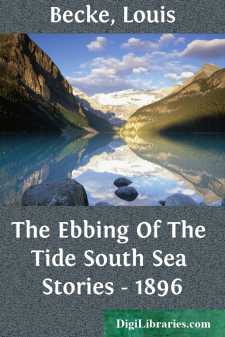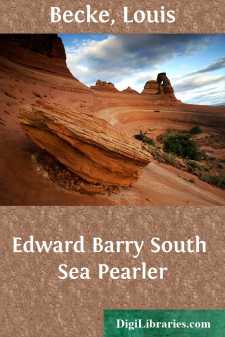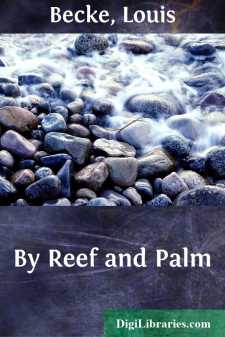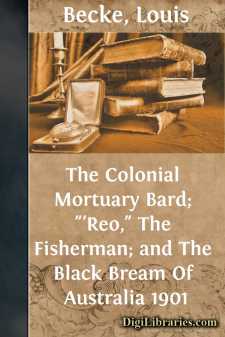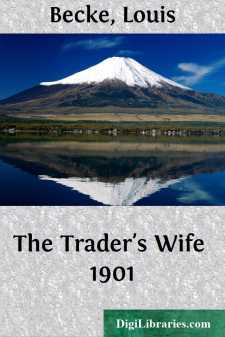Categories
- Antiques & Collectibles 13
- Architecture 36
- Art 48
- Bibles 22
- Biography & Autobiography 813
- Body, Mind & Spirit 142
- Business & Economics 28
- Children's Books 17
- Children's Fiction 14
- Computers 4
- Cooking 94
- Crafts & Hobbies 4
- Drama 346
- Education 46
- Family & Relationships 57
- Fiction 11829
- Games 19
- Gardening 17
- Health & Fitness 34
- History 1377
- House & Home 1
- Humor 147
- Juvenile Fiction 1873
- Juvenile Nonfiction 202
- Language Arts & Disciplines 88
- Law 16
- Literary Collections 686
- Literary Criticism 179
- Mathematics 13
- Medical 41
- Music 40
- Nature 179
- Non-Classifiable 1768
- Performing Arts 7
- Periodicals 1453
- Philosophy 64
- Photography 2
- Poetry 896
- Political Science 203
- Psychology 42
- Reference 154
- Religion 513
- Science 126
- Self-Help 84
- Social Science 81
- Sports & Recreation 34
- Study Aids 3
- Technology & Engineering 59
- Transportation 23
- Travel 463
- True Crime 29
Sort by:
by:
Louis Becke
"LULIBAN OF THE POOL" A boy and a girl sat by the rocky margin of a deep mountain pool in Ponape in the North Pacific. The girl was weaving a basket from the leaves of a cocoa-nut. As she wove she sang the "Song of Luliban," and the boy listened intently. "'Tis a fine song that thou singest, Niya," said the boy, who came from Metalanien and was a stranger; "and who was...
more...
by:
Louis Becke
CHAPTER I. A wild, blustering day in Sydney, the Queen City of the Southern Seas. Since early morn a keen, cutting, sleet-laden westerly gale had been blowing, rattling and shaking the windows of the houses in the higher and more exposed portions of the town, and churning the blue waters of the harbour into a white seethe of angry foam as it swept outwards to the wide Pacific. In one of the little...
more...
by:
Louis Becke
INTRODUCTION When in October, 1870, I sailed into the harbour of Apia, Samoa, in the ill-fated ALBATROSS, Mr Louis Becke was gaining his first experiences of island life as a trader on his own account by running a cutter between Apia and Savai'i. It was rather a notable moment in Apia, for two reasons. In the first place, the German traders were shaking in their shoes for fear of what the French...
more...
by:
Louis Becke
"BULLY" HAYES! Oh, halcyon days of the sixties and seventies, when the Pacific was not, as now, patrolled by men-of-war from lonely Pylstaart, in the Friendlies, to the low-lying far-away Marshalls and the coral lagoons of the north-west; when the Queensland schooners ran full "nigger" cargoes to Bundaberg, Maryborough, and Port Mackay; when the Government agents, drunk nine days out of...
more...
by:
Louis Becke
A few weeks ago I was reading a charmingly written book by a lady (the wife of a distinguished savant) who had spent three months on Funafuti, one of the lagoon islands of the Ellice Group. Now the place and the brown people of whom she wrote were once very familiar to me, and her warm and generous sympathy for a dying race stirred me greatly, and when I came across the name "Funâfala," old,...
more...
by:
Louis Becke
CAPTAIN "BULLY" HAYES In other works by the present writer frequent allusion has been made, either by the author or by other persons, to Captain Hayes. Perhaps the continuous appearance of his name may have been irritating to many of my readers; if so I can only plead that it is almost impossible when writing of wild life in the Southern Seas to avoid mentioning him. Every one who sailed the...
more...
by:
Louis Becke
CHAPTER I "Hallo! young lady, what on earth are you doing here?" and Gerrard bent down over his horse's shoulder, and looked inquiringly into the face of a small and exceedingly ill-clad girl of about ten years of age. "Nothing, sir, I only came out for a walk, and to get some pippies." "And where do you get them?" "Down there, sir, on the sand," and the child...
more...
by:
Louis Becke
THE COLONIAL MORTUARY BARD A writer in the Sydney Evening News last year gave that journal some amusing extracts from the visitors' book at Longwood, St. Helena. If the extracts are authentic copies of the original entries, they deserve to be placed on the same high plane as the following, which appeared in a Melbourne newspaper some years ago:— "Our Emily was so fairThat the angels envied...
more...
by:
Louis Becke
"Well, there's niggers an' niggers, some just as good as any white man," said Mr. Thomas Potter as he, the second mate of the island-trading barque Reconnaisance, and Denison the supercargo, walked her short, stumpy poop one night, "though when I was before the mast I couldn't stand one of 'em bunking too close to me—not for a long time. But after awhile I found out...
more...
by:
Louis Becke
CHAPTER I Brabant's wife was sitting on the shady verandah of her house on the hills overlooking Levuka harbour, and watching a large fore and aft schooner being towed in by two boats, for the wind had died away early in the morning and left the smooth sea to swelter and steam under a sky of brass. The schooner was named the Maritana, and was owned and commanded by Mrs. Brabant's husband,...
more...


